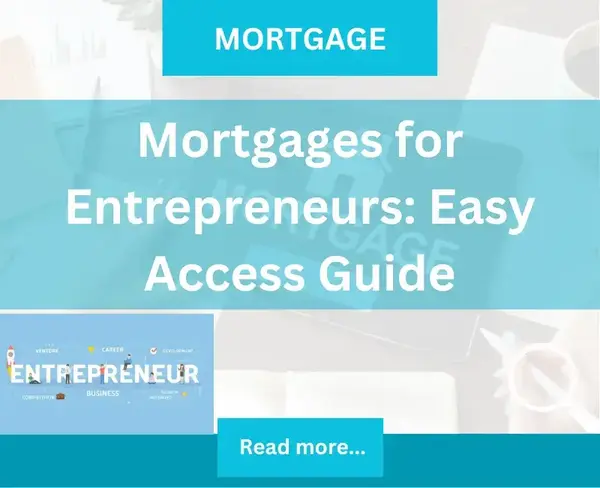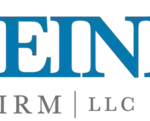Mortgages for entrepreneurs refers to the specialized mortgage products and processes designed to accommodate entrepreneurs or self-employed individuals. These individuals often have unique financial circumstances due to the nature of their work, which can involve variable income streams, business deductions, and other complexities not typically seen in traditional employment.
In this article, we will examine what the mortgages for entrepreneurs is, the mortgage process for entrepreneurs, the benefits of mortgages for entrepreneurs, strategies to improve mortgage eligibility for entrepreneurs, types of mortgages for entrepreneurs, government support and programs for mortgages for entrepreneurs, documentation of income for mortgage applications, finding the right mortgages for entrepreneurs provider, and finally the top companies that provide the mortgages for entrepreneurs.
- The Mortgage Process for Entrepreneurs
- The Benefits of Mortgages for Entrepreneurs
- Strategies to Improve Mortgage Eligibility for Entrepreneurs
- Types of Mortgages for Entrepreneurs
- Government Support and Programs for Mortgages for Entrepreneurs
- Documentation of Income for Mortgage Applications
- Finding the Right Mortgages for Entrepreneurs Provider
- Top Companies Providing Mortgages for Entrepreneurs
- Conclusion
- Mortgages for Entrepreneurs FAQ
The Mortgage Process for Entrepreneurs
The mortgage process for entrepreneurs introduces unique considerations and challenges that arise from their self-employment and variable income streams. As individuals who embark on innovative ventures and shape their business paths, entrepreneurs must navigate a mortgage application journey that showcases their financial stability and creditworthiness in distinctive ways. This process involves gathering comprehensive documentation, demonstrating income consistency, and collaborating closely with experienced lenders who understand the intricacies of entrepreneurship.
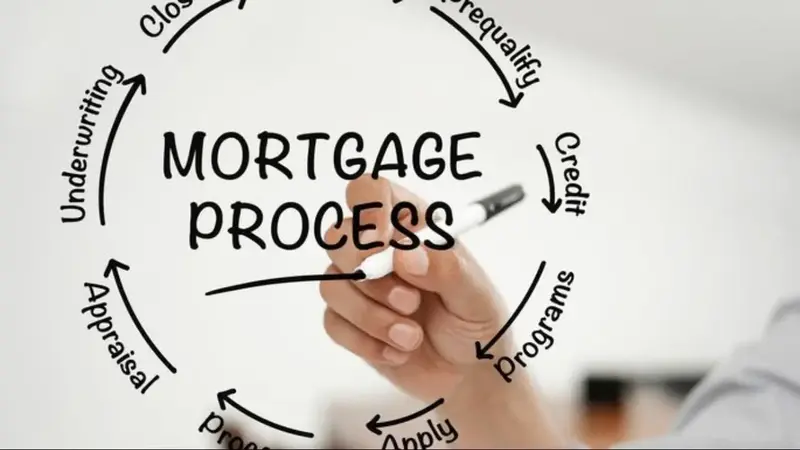
The mortgage process for entrepreneurs is similar to that of regular borrowers. Still, entrepreneurs may face specific considerations and challenges due to the nature of their income and financial situation. Here’s an overview of the mortgage process for entrepreneurs:
- Gather Financial Documentation: Entrepreneurs must provide extensive documentation demonstrating their gross income and financial stability. This may include personal tax returns and business tax returns, profit and loss statements, bank statements, business licenses, and any other relevant financial records.
- Check Credit Score: Your credit score will play a significant role in determining your loan eligibility for a mortgages for entrepreneurs and the interest rate you’ll receive. Check your credit report regularly for accuracy and, if necessary, take steps to improve your credit score.
- Determine Loan Amount: Decide the amount you need to borrow based on your home buying budget, the type of residential property loans you want to purchase, and your down payment. Consider getting pre-approved for a mortgages for entrepreneurs to understand your budget better.
- Choose a Mortgage Type: There are different types of mortgages for entrepreneurs available, such as fixed-rate mortgages, adjustable-rate mortgages, and government-backed loans (FHA, VA, USDA). Choose the one that best suits your financial situation and your long-term goals.
- Shop for Lenders: Research and compare mortgages for entrepreneurs lenders for the best terms and rates. You may want to work with a lender experienced in working with self-employed individuals and entrepreneurs. When a self-employed person applies for a mortgage, two words often come to mind for loan officers: high risk.
- Submit Application: Complete a mortgage application with your chosen experienced mortgage lender. Be prepared to provide detailed information about your income, assets, and liabilities.
- Underwriting Process: The lender will review your application and documentation to assess your creditworthiness and determine if you employment qualify for the loan. This may involve verifying your income loans, business ownership, and other financial details.
- Provide Additional Documentation: During underwriting, the lender may request additional documentation or explanations for certain financial aspects. Be prepared to provide any necessary information promptly.
- Property Appraisal: The lender will order an appraisal of the property to assess its value and ensure it meets mortgage industry lending standards.
- Loan Approval: Once your application is approved and all conditions are met, you’ll receive loan approval. This is the lender’s commitment to providing you with a mortgages for entrepreneurs.
- Closing Disclosure: You’ll receive a Closing Disclosure outlining the final terms of the loan, including interest rate, monthly payments, and closing costs. Review it carefully before closing.
- Closing: Attend the closing meeting to sign the necessary documents and finalize the mortgages for entrepreneurs. You’ll pay any remaining closing costs and provide the down payment.
- Repayment and Servicing: You’ll start making monthly mortgages for entrepreneurs payments after closing. Some lenders may sell your loan to a servicing company that will handle payment collection and customer service.
Entrepreneurs need to work closely with a knowledgeable mortgages for entrepreneurs professional who understands their unique financial situation and can effectively guide them through the process. Being prepared with accurate and comprehensive documentation will help streamline the process and increase the likelihood of a successful mortgage application.
The Benefits of Mortgages for Entrepreneurs
Obtaining a mortgages for entrepreneurs as an entrepreneur can be a complex process due to irregular income streams, operating business expenses, and tax implications. Navigating the mortgages for entrepreneurs landscape can be overwhelming, but working with a qualified mortgages for entrepreneurs professional who understands the unique needs of entrepreneurs can be game-changing. This article will explore the benefits of working with a mortgage professional as an entrepreneur, including their expertise, guidance, and support in the mortgages for entrepreneurs application process.
Expertise in Entrepreneurship Finance
Mortgages for entrepreneurs professionals who specialize in working with entrepreneurs deeply understand the unique financial environment entrepreneurs face. They are familiar with irregular income streams, operating expenses, and tax implications and can provide specific guidance and solutions to meet these challenges. They are familiar with various mortgage options suitable for entrepreneurs, including traditional, FHA, VA, and USDA loans and alternative loan options such as portfolio conforming loans and unconditional mortgages for entrepreneurs. A mortgage professional can provide valuable information and advice on alternative mortgage rate option that suit an entrepreneur’s finances and long-term goals.
Guidance on Documentation Requirements
One of the challenges entrepreneurs face when buying mortgages for entrepreneurs are recording their income ratio. Lenders often require proof of income to assess a borrower’s ability to repay the loan. Entrepreneurs may need help documenting their earnings due to erratic income streams, operating expenses, and tax implications. A mortgage professional can guide specific documents required for entrepreneurs, such as tax returns, bank statements, income statements, and employment mortgages contracts. It helps entrepreneurs accurately document their income and promptly provides all necessary documents to lenders. Employment verification Income documentation When searching for the best mortgage lenders for self-employed people, you may seek a traditional mortgage loan officer with experience underwriting a self-employment mortgage.
Efficient Mortgage Application Process
The mortgage application process can be long and complex, involving many documents, forms, and procedures. A mortgage professional can streamline the home loan application process for business owners by providing guidance on required documents, helping them fill out forms, and presenting them to lenders on their behalf. If necessary, you can proactively contact your lender to gather additional information and address any questions or concerns that may arise during the underwriting process. This saves entrepreneurs valuable time and effort, allowing them to focus on running their businesses while mortgage professionals deal with the details of the complete mortgage application process.
Access to a Wide Network of Lenders
Mortgage professionals often have access to a wide network of lenders, including traditional banks, credit unions, and alternative sources of credit. This gives entrepreneurs more options and opportunities to get mortgages for entrepreneurs that fits and benefits their finances and goals. Mortgage professionals research and compare various mortgages for entrepreneurs offers on behalf of entrepreneurs, helping them find the best terms, interest rates, and fees for their needs. This provides significant personal savings over the life of the mortgages for entrepreneurs and helps entrepreneurs get the best mortgage deal possible.
Credit Analysis and Improvement Expertise
Your credit score plays an important current role in your mortgage eligibility and terms. Mortgage professionals offer expertise in credit analysis and remediation to help business owners understand their credit profiles and identify areas for improvement. They can advise on how to build a good credit history, manage your debt, and improve your credit score. This includes advice on paying off outstanding debt, resolving credit report errors, and building credit habits. By increasing their creditworthiness, entrepreneurs can get mortgages for entrepreneurs approval and better terms and interest rates.
Overcoming Challenges and Seizing Opportunities
Entrepreneurs may need help to obtain a mortgage due to variable incomes, high operating costs, and complex tax situations. We discuss strategies and solutions for entrepreneurs to overcome these challenges. This includes planning, keeping accurate financial records, and seeking professional advice from tax and mortgage professionals. Additionally, we outline the opportunities for taking a mortgage as an entrepreneur, including equity, tax benefits, and long-term wealth accumulation. With careful planning, preparation, and professional guidance, entrepreneurs can turn challenges into opportunities and fulfill their dream of owning their own homes.
Strategies to Improve Mortgage Eligibility for Entrepreneurs
Entrepreneurs seeking to enhance their mortgages for entrepreneurs eligibility can employ several strategic approaches to highlighting their financial stability and creditworthiness. Given the unique nature of their income and financial situation, implementing these strategies can improve their chances of securing a favorable mortgages for entrepreneurs.

Here are key tactics to consider:
- Maintain Consistent Income Records: Demonstrating a stable income is crucial. Entrepreneurs should strive to maintain consistent business income over some time, ideally two years or more. Lenders often seek a reliable track record to assess income stability.
- Improve Personal Credit Score: A solid personal credit score enhances eligibility. Entrepreneurs should diligently manage personal credit accounts, pay bills on time, and reduce outstanding debts to improve their creditworthiness.
- Minimize Deductions: While tax deductions reduce taxable income, they can also lower the income lenders consider for loan qualification. Strategically managing deductions to align with mortgages for entrepreneurs goals can help increase the income for eligibility assessment.
- Separate Personal and Business Finances: Maintaining separate bank accounts and financial records for personal and business transactions can provide a clear picture of personal income and improve the accuracy of financial documentation for lenders.
- Prepay Personal Taxes: Paying personal income taxes in full can increase the income considered by lenders for mortgages for entrepreneurs qualification. This strategy showcases a higher income level and improves debt-to-income ratios.
- Build a Cash Reserve: Accumulating a cash reserve demonstrates financial stability and mitigates concerns about irregular income. A robust cash reserve can serve as a safety net during challenging periods and reassure lenders of your ability to manage mortgages for entrepreneurs payments.
- Provide Comprehensive Documentation: Be prepared to provide thorough documentation, including tax returns, profit and loss statements, business licenses, and bank statements. A comprehensive financial year history offers transparency and instills confidence in lenders.
- Work with a Mortgage Specialist: Collaborating with a mortgage lender experienced in working with entrepreneurs can provide valuable insights and guidance tailored to your unique financial situation. They can help you navigate complex income scenarios and identify suitable mortgages for entrepreneurs options.
- Strengthen Business Financials: Demonstrating a thriving business with consistent revenue growth and positive cash flow bolsters your overall financial profile. Strong business financials can positively influence lenders’ perception of your stability.
- Consider Co-Signers or Joint Applicants: Involving a co-signer or joint applicant with a stable income can enhance eligibility, particularly if the co-signer has a strong credit history and reliable income.
- Increase Down Payment: A larger down payment can offset perceived risk and improve eligibility. By contributing a substantial portion upfront, entrepreneurs may qualify for more favorable loan terms and interest rates.
- Stay Informed: Stay informed about changes in lending requirement and market trends that may impact mortgages for entrepreneurs eligibility for entrepreneurs. Adapting your financial strategy to align with evolving guidelines can position you for success. Mortgage market lending favors wage-earners receiving a W2 over business owners, entrepreneurs, or active real estate investors.
By implementing these strategies, entrepreneurs can proactively address the unique challenges of their financial situation and position themselves for improved mortgages for entrepreneurs eligibility. Working closely with a knowledgeable mortgages for entrepreneurs professional is essential to tailor these tactics to your circumstances and navigate the application process effectively.
Types of Mortgages for Entrepreneurs
Securing a mortgage as an entrepreneur comes with its own set of challenges and considerations. In response to distinct needs, financial institutions have developed a range of mortgages for entrepreneurs options designed specifically for entrepreneurs. These innovative mortgages for entrepreneurs types recognize entrepreneurs’ diverse financial situations and offer flexibility, alternative income verification methods, and tailored terms to accommodate their entrepreneurial endeavors.
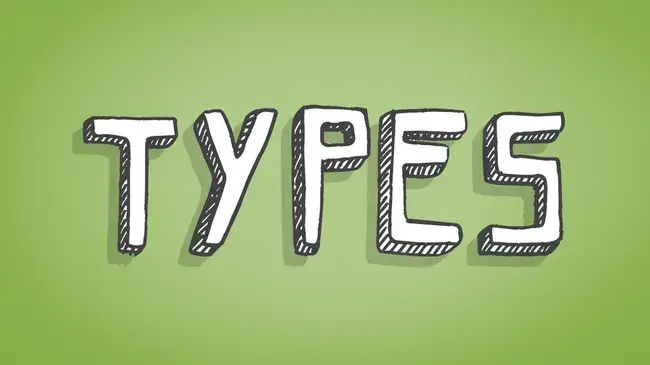
Some types of mortgages for entrepreneurs include:
- Best Conventional Mortgage: This standard mortgages for entrepreneurs offered by conventional loan lenders such as banks and credit unions requires documentation of a stable income and good credit history. As an entrepreneur, you must provide proof of income through tax returns, financial statements and other financial documents related to your business. The best lenders for conventional loans may also evaluate your creditworthiness based on your credit score. Conventional mortgages companies will help you with everything.
- FHA (Federal Housing Administration) Mortgage: FHA loans are backed by the federal government and are set to assist low-income and first-time homebuyers, including entrepreneurs who may have less established credit histories or lower down payment funds. FHA mortgage lenders typically have lower down payment requirements and softer credit score requirements than traditional mortgage loans; this can be helpful for entrepreneurs with limited funds or credit history. This is why FHA loan providers are important.
- VA (Department of Veterans Affairs) Mortgage: VA mortgage loan is available to eligible veterans, active-duty service members, and their surviving spouses. The Department of Veterans Affairs backs these loans, often with favorable terms such as low or no down payment requirements and competitive interest rates. VA loans may be suitable for entrepreneurs who are veterans or regular military. This is why VA mortgage companies are so important.
- Non-Qualified Mortgage (Non-QM) or Bank Statement Mortgage: Non-QM or bank statement mortgages for entrepreneurs are designed for mortgage borrowers with non-traditional sources or who have difficulty documenting their income through traditional means, such as tax returns. These types of mortgages for entrepreneurs may be suitable for entrepreneurs with fluctuating incomes, multiple income streams, or irregular income patterns. Non-Qualified mortgage lenders may use bank statements or other documents to assess your income and loan repayment ability.
- Portfolio Mortgage: A portfolio mortgage is a type of mortgage held by the lender in their portfolio rather than sold on the secondary market. These loans are generally more flexible in their underwriting criteria and are suitable for entrepreneurs with unique financial situations. Community banks, credit unions, or other best portfolio lenders may offer portfolio mortgages for entrepreneurs.
- Adjustable Rate Mortgage (ARM): ARMs are home loans where the interest rate is initially fixed and then adjusted periodically to reflect market interest rates. ARMs are attractive to variable-income entrepreneurs as they offer lower initial interest rates than fixed-rate mortgages for entrepreneurs. However, it is important to carefully consider the potential risks and costs associated with floating interest rates and how they may affect your finances over time.
It’s important to note that mortgages for entrepreneurs requirements can vary by lender and location. We recommend working with a qualified mortgage professional to guide you through the process and help you choose the best mortgage option for your unique needs and circumstances. Having a business income and financial standing, a good credit history, and a fully and accurately documented stable financial situation can also increase your chances of getting a mortgage as a business owner.
Mortgage Types and Their Suitability for Entrepreneurs
Here’s a comparative table of different mortgage types and how they cater to entrepreneurs:
| Mortgage Type | Features | Suitability for Entrepreneurs |
| Traditional Fixed-Rate | Steady installments over the life of the credit. | Less favorable due to rigid income verification requirements. |
| Adjustable-Rate Mortgage (ARM) | Lower rates initially, which adjust over time. | Potentially favorable during periods of expected income growth. |
| FHA Loans | Reduce down payments, and remember to make loan requirements more flexible. | Suitable if meeting income documentation standards. |
| VA Loans | No down payment is required, and no PMI. Eligibility depends on military service. | It is not applicable unless the entrepreneur has a military background. |
| Bank Statement Loans | Income verification through bank statements rather than tax documents. | Highly suitable for showing cash flow rather than taxable income. |
The choice of mortgage type for entrepreneurs depends significantly on their specific financial situations and how they manage business revenues. Entrepreneurs should thoroughly evaluate each option’s advantages and constraints, considering their long-term financial strategies and the current state of their business. Consulting with specialized lenders who understand the nuances of entrepreneurial income can also lead to more tailored and feasible mortgage solutions.
Government Support and Programs for Mortgages for Entrepreneurs
Several government support and major mortgage programs are available to help entrepreneurs secure mortgages for entrepreneurs and achieve their homeownership goals. These mortgage programs are designed to address entrepreneurs’ unique financial situations and challenges. Here are some examples of government-supported initiatives:
- Federal Housing Administration (FHA) Loans: FHA loans are popular among first-time homebuyers and entrepreneurs due to their lenient credit requirements and lower down payment options. The government ensures these loans, making them more accessible to borrower with lower credit scores.
- USDA Rural Development Loans: These loans promote homeownership in rural and suburban areas. Entrepreneurs who live or plan to purchase a property in eligible rural areas may benefit from these loans, which offer low-interest rates and no down payment options.
- Small Business Administration (SBA) Loans: While SBA loans are primarily intended for business financing, they can indirectly assist entrepreneurs in obtaining mortgages for entrepreneurs. By funding entrepreneurs and helping them establish and grow their businesses, SBA loans can improve their overall financial profile and increase their eligibility for traditional mortgages for entrepreneurs.
- NeighborWorks America: This nonprofit organization offers financial education and counseling services to help entrepreneurs and others navigate homebuying. They also provide down payment assistance in some cases.
- Veterans Affairs (VA) Loans: VA loans are available to eligible veterans, active-duty service members, and specific National Guard and Reserves members. These loans provide competitive interest rates, flexible credit requirements, and zero down payment options.
- State and Local Housing Programs: Many states and local governments offer housing assistance home loan programs, which may include down payment assistance, low-interest loans, and grants for entrepreneurs and other homebuyers. These programs vary widely by location, so it’s important to research options specific to your area.
- Energy Efficient Mortgage (EEM) Program: This program, backed by the Federal Housing Administration (FHA) and Veterans Affairs (VA), allows borrowers to finance energy-efficient improvements as part of their mortgages for entrepreneurs. Entrepreneurs interested in making eco-friendly home upgrades may find this program beneficial.
- HUD Housing Counseling Program: The U.S. Department of Housing and Urban Development (HUD) offers housing counseling services to guide entrepreneurs through home buying, including understanding mortgages for entrepreneurs options, improving credit, and managing finances.
It’s important to note that the availability and details of these programs can change over time. To explore specific mortgage loan program and determine your eligibility, it’s recommended to consult with mortgages for entrepreneurs lenders, housing counselors, and relevant government agencies. They can provide up-to-date information and guidance tailored to your situation as an entrepreneur.
Documentation of Income for Mortgage Applications
When embarking on the journey to secure a mortgage, income documentation is a pivotal aspect of the application process. Whether you’re a salaried employee, a self-employed entrepreneur, or fall somewhere in between, effectively presenting a comprehensive and accurate picture of your financial capacity is crucial in determining your eligibility for a mortgage loan. For self-employed individuals and entrepreneurs, this process mainly involves navigating a landscape that necessitates a deeper exploration of financial records, business documentation, and income consistency.
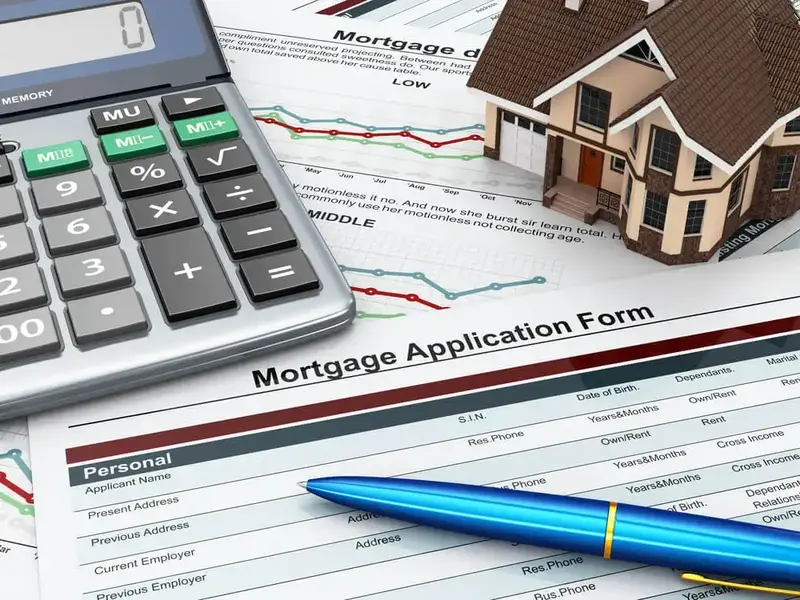
As an entrepreneur, you must document your income accurately and completely when applying for a housing loan. Lenders often require proof of income to assess your ability to repay the loan. Common ways to prove income on a mortgage application include:
- Tax Returns: Filing personal and business tax returns for the past two years is a common way to record your income. This includes individual tax returns (Form 100) and corporate tax returns such as Schedule C (for sole proprietorships), Form 1120 (for corporations), and Form 1065 (for partnerships). A qualified tax professional must prepare these tax returns and show your net income (after deductions) from your business.
- Financial Statements: Presenting financial reports such as profit and loss (P&L), balance sheets, and cash flow statements will also help you record your income. These statements provide a snapshot of a company’s financial condition and help lenders evaluate income stability and cash flow.
- Bank Statements: Providing personal or business bank statements is another way to prove your income. Lenders can check their bank statements to see their businesses’ income and expenses and to evaluate their cash flow and overall financial stability.
- Business Documentation: Providing business-related documents such as contracts, invoices, and client agreements can help verify your income. These documents can show your business income and contractual commitments, demonstrating your ability to generate a consistent income.
- Letter from an Accountant: Getting a letter from a certified public accountant (CPA) or another qualified financial professional can help you verify your income. The letter should be written on professional letterhead and include your business, income, and other relevant financial information.
- Business Profitability: Lenders may also consider your business’s overall profitability and sustainability as a factor when assessing your income. Evidence of a profitable and stable business includes business plans, financial forecasts, existing contracts and partnerships, and other information to support your mortgage application.
It’s important to remember that different lenders may have varying lender requirements for documenting income, and you must provide accurate and complete documentation to support your mortgage application. Working with a qualified mortgage professional and certified public accountant can help guide the process and ensure your income is properly documented for your mortgage application.
Finding the Right Mortgages for Entrepreneurs Provider
Finding the right mortgage provider as an entrepreneur can be more complex than traditional salaried employees due to the variability in income and how business finances are assessed. Here are considerations for entrepreneurs seeking a mortgage:
- Assess Your Financial Profile: Before approaching lenders, ensure your financial documents are in order. This includes your tax returns, profit and loss statements, and a balance sheet, if applicable. Lenders will review these documents to assess your income stability and business health.
- Consider a Larger Down Payment: Offering a larger down payment helps offset lenders’ perceived risk about variable self-employed income.
- Consider Non-Traditional Lenders: Besides traditional banks, look at credit unions, online mortgage lenders, and organizations specializing in loans for small business owners and self-employed individuals. These institutions often have more experience and flexibility with non-traditional income.
- Explore Government-Backed Loans: Programs offered by the U.S. Small Business Administration (SBA) might provide more favorable terms for business owners. They often require less down payment and have more lenient eligibility requirements.
- Maintain a Strong Credit Score: Your personal and business credit scores will significantly secure a mortgage. Ensure you manage your debts effectively and maintain a strong credit history.
- Professional Advice: Consulting with a financial personal mortgage advisor or a experienced mortgage broker specializing in helping self-employed individuals can provide valuable insights and connections to suitable lenders.
Researching and comparing various mortgage options and preparing thoroughly can help you find a suitable mortgage provider that understands and caters to the needs of entrepreneurs.
Top Companies Providing Mortgages for Entrepreneurs
Securing a mortgages for entrepreneurs are pivotal for entrepreneurs looking to establish a stable foundation for their business endeavors. As these visionary individuals navigate the intricate entrepreneurship landscape, they often require financial support to acquire properties for offices, manufacturing facilities, or even residential spaces that can double as a workspace. In response to this growing demand, many forward-thinking companies have emerged, offering mortgages for entrepreneurs tailored to entrepreneurs’ unique needs and challenges. These companies understand the dynamic nature of entrepreneurial ventures and appreciate the potential long-term benefits of supporting these ambitious individuals in their real estate pursuits.
Here is a list of the best mortgages for entrepreneurs companies:
- NewtekOne
- Jp Morgan and Co.
- Fairway Reverse Mortgage
- Rocket Loans
Let’s review the best mortgages for entrepreneurs companies in order:
NewtekOne

NewtekOne is a financial institution that provides mortgage financing solutions to small businesses in the United States. They offer various mortgage lending options, including Newtek SBA loans, term loans, lines of credit, commercial real estate loans, NewtekOne and equipment financing. Newtek SBA loan requirements should be considered. Newtek financing supports small businesses for business expansion, working capital needs, equipment purchases, and other operating expenses.
NewtekOne has a team of experienced finance professionals who work with small business owners to understand their unique needs and provide tailored financing solutions. Newtek loans offer competitive interest rates, flexible repayment terms, and fast financing to help small businesses get the capital they need quickly and efficiently.
It is important to note that I do not have real-time information as a language model, and details about NewtekOne may change over time. You should visit their official website or contact them directly for the most up-to-date and accurate information about their products, services, and terms.
Mortgages for Entrepreneurs with NewtekOne
Entrepreneurship is often marked by ambition, innovation, and calculated risks. For many entrepreneurs, the ultimate dream extends beyond business success to homeownership. Recognizing the unique financial needs of these trailblazers, NewtekOne steps in as a guiding light, offering innovative mortgages for entrepreneurs solutions tailored to the aspirations of entrepreneurs.
One of the hurdles entrepreneurs encounter in obtaining mortgages for entrepreneurs are the traditional income verification process. NewtekOne takes a forward-thinking approach by considering alternative methods of income assessment. Bank statements, tax returns, and business financials are all part of the equation, allowing a more comprehensive view of an entrepreneur’s financial stability and capacity to handle mortgages for entrepreneurs obligations.
For entrepreneurs, the home loan journey to homeownership can be a transformative step that aligns with their vision of success. NewtekOne bridges the gap between entrepreneurial aspirations and homeownership realities, offering flexible mortgages for entrepreneurs solutions that cater to the distinctive financial profiles of these trailblazers. Through tailored approaches, personalized support, and a commitment to empowerment, Newtek paves the way for entrepreneurs to unlock new horizons in business and the place they call home.
To learn more about NewtekOne, you can review this article: NewtekOne
From this link you can visit NewtekOne‘s website: https://www.newtekone.com/
NewtekOne Phone Number: 855.763.9835
J.P. Morgan and Co.
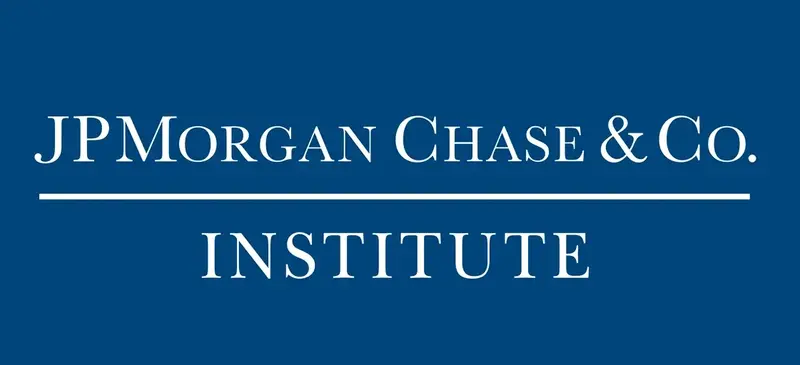
J.P. Morgan and Co., often called J.P. Morgan, is a prominent and historic American multinational investment banking and financial services firm. It was founded by J. Pierpont Morgan in 1871 and significantly shaped the modern financial landscape.
J.P. Morgan and Co. has been involved in many significant financial transactions and events throughout its history, including the formation of U.S. Steel, the creation of the Federal Reserve System, and its participation in various mergers and acquisitions. In recent times, the firm has evolved and changed. It merged with Chase Manhattan Corporation in 2000 to become J.P. Morgan and Co., one of the world’s largest and most diversified financial institutions. JPMorgan Chase offers various financial services, including investment banking, asset management, retail banking, and more.
Mortgages for Entrepreneurs with J.P. Morgan and Co.
J.P. Morgan and Co. (now known as JPMorgan Chase & Co.) offers a variety of financial products and services, including mortgages for entrepreneurs lending. However, specific mortgage offerings for entrepreneurs or business owners might vary over time and depend on the current policies and market conditions.
Suppose you want to explore mortgages for entrepreneurs options for entrepreneurs from JPMorgan Chase or any other financial institution. In that case, I recommend contacting their mortgage department or visiting their official website to obtain the most up-to-date and accurate information about their current offerings and eligibility criteria. Remember that financial products and services can change over time, so verifying the details directly from the source is essential.
To learn more about J.P. Morgan and Co., you can review this article: J.P. Morgan and Co.
From this link you can visit J.P. Morgan and Co.‘s website: https://www.jpmorganchase.com/
J.P. Morgan and Co. Phone Number: 1-800-935-9935
Fairway Reverse Mortgage
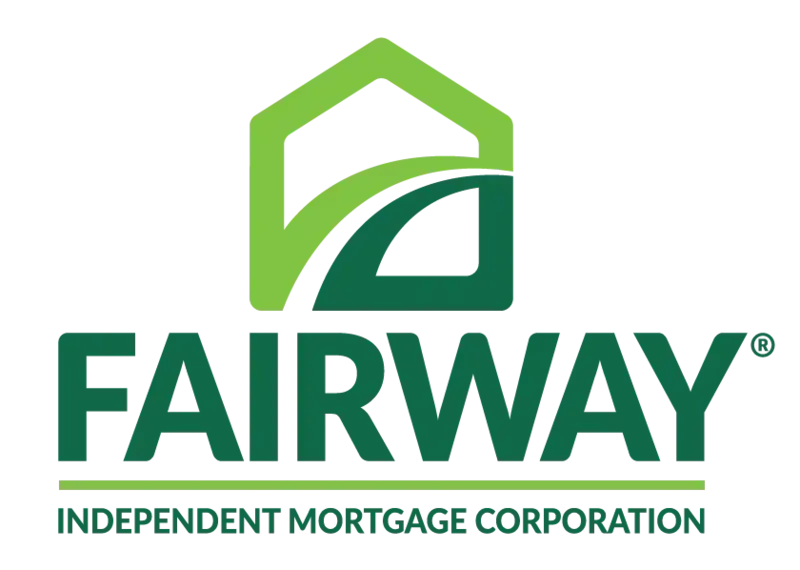
Fairway Reverse Mortgage is a mortgage lender that provides a wide range of home loan products and services. Founded in 1996 by Steve Jacobson, Fairway Reverse Mortgage has become one of the largest privately-held mortgage lenders in the country. Fairway Reverse Mortgage takes pride in its customer-centric philosophy, ensuring that seniors are well-informed and comfortable with their financial decisions. The company emphasizes transparent communication, providing comprehensive information about a reverse mortgage’s terms, costs, and potential risks.
Fairway Reverse Mortgage offers seniors financial security and peace of mind in retirement. By unlocking home equity without the burden of monthly mortgage payments, seniors can enjoy the financial flexibility to create the retirement they’ve always dreamed of. Considering your retirement options, a Fairway Reverse Mortgage could be the key to unlocking a more comfortable and fulfilling future.
Mortgages for Entrepreneurs with Fairway Reverse Mortgage
Entrepreneurs are known for their ambition, innovation, and drive to succeed. Their financial needs and goals can evolve as they navigate the challenges and opportunities of business ownership. Fairway Reverse Mortgage offers a unique solution for entrepreneurs seeking to leverage their home equity loan to support their ventures or retirement while staying in their beloved homes.
Entrepreneurs often have a distinct relationship with their finances. Their income streams may vary, their retirement plans might differ from traditional employees, and they may need to access funds for business investments or personal endeavors. Fairway Reverse Mortgage recognizes these complexities and tailors its reverse mortgage offerings to provide entrepreneurs with a flexible and versatile financial tool.
Fairway Reverse Mortgage offers entrepreneurs a unique way to unlock the potential of their home equity while supporting their business aspirations or retirement dreams. With its tailored solutions, expert guidance, and commitment to empowering entrepreneurs, Fairway Reverse Mortgage is a partner that understands the dynamic financial needs of business owners. By choosing Fairway, entrepreneurs can harness the value of their homes to create opportunities, invest in growth, and secure their financial future.
To learn more about Fairway Reverse Mortgage, you can review this article: Fairway Reverse Mortgage
From this link you can visit Fairway Reverse Mortgage‘s website: https://fairwayreverse.com/
Fairway Reverse Mortgage Phone Number: 844-940-4326
Rocket Loans
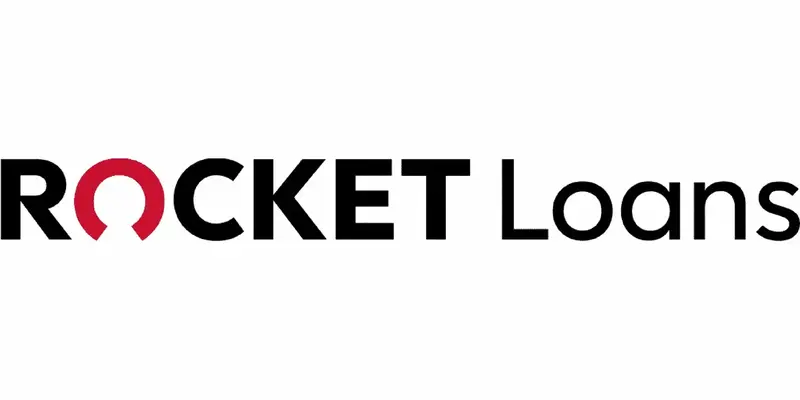
Rocket Loans is a leading online mortgage lender in the United States. The company was founded in 1985 by Dan Gilbert and is headquartered in Detroit, Michigan. Rocket Loans is best known for its online platform Rocket Mortgage, which offers a streamlined and digitized mortgage application process.
Rocket Loans claims to simplify the mortgage process by leveraging technology and automation to make it faster and more efficient. Rocket Loans for business are very important. The company offers various mortgage products, including traditional loans, FHA loans, VA loans, jumbo loans, and adjustable rate mortgages (ARMs). Quicken Loans commercial mortgage, Quicken Loans home mortgage, and Quicken loans physician mortgage is other examples of mortgages.
It is always recommended that borrowers thoroughly research and compare multiple lenders, including Rocket Loans, to ensure they get the best mortgage terms and rates to suit their needs. As with any financial decision, it is very important to carefully review the terms and conditions of the mortgage offer, including fees, interest rates, and repayment terms, to make an informed decision.
Mortgages for Entrepreneurs with Rocket Loans
Rocket Loans offers mortgages for entrepreneurs products specifically designed for entrepreneurs and self-employed borrowers, recognizing that their financial situation may differ from traditionally employed individuals. These mortgage products are tailored to fit the unique financial profiles of entrepreneurs, including business owners, self-employed and self-employed.
Here are some key features of Rocket Loans mortgages for entrepreneurs:
- Flexible Income Verification: Rocket Loans recognizes that entrepreneurs can have non-traditional sources of income and risk not having a consistent paycheck like traditionally employed borrowers. Therefore, they offer flexible income verification options considering entrepreneurs’ business income, self-employment income, or other non-traditional income sources. This may include providing business tax returns, profit and loss statements, and bank statement loan to verify income.
- Simplified Documentation: Rocket Loans seeks to simplify the mortgage process for entrepreneurs by reducing document requirements. They may offer options to provide bank statements, invoices, or other documents related to the borrower’s business instead of traditional W-2 forms or pay stubs.
- Competitive Interest Rates: Rocket Loans offers competitive interest rates for entrepreneurs, similar to other mortgage products. However, interest rates can vary depending on factors such as credit score, loan-to-value ratio, and personal loan term.
- Various Mortgage Options: Rocket Loans offers a variety of mortgage options for entrepreneurs, including conventional loans, FHA loans, VA loans, jumbo loans, and adjustable rate mortgages (ARMs). This allows entrepreneurs to choose the mortgage product that best suits their financial situation and goals.
- Online Platform: As an online mortgage lender, Rocket Loans provides convenience and flexibility for busy entrepreneurs by offering a digitized mortgage application process, allowing entrepreneurs to apply for a mortgage, upload documents and track their loan progress online.
Rocket Loans recognizes the invaluable contributions of entrepreneurs and aims to simplify their path to homeownership. Rocket Loans empowers entrepreneurs to secure mortgages for entrepreneurs that align with their unique financial circumstances by offering flexible income verification, credit assessment, and a digital platform. With Rocket Loans as a supportive partner, entrepreneurs can confidently invest in their future while continuing to fuel their innovative pursuits.
To learn more about Rocket Loans, you can review this article: Rocket Loans
From this link you can visit Rocket Loans‘ website: https://www.rocketmortgage.com/
Rocket Loans Phone Number: (888) 452-8179
Conclusion
Securing a mortgage as an entrepreneur requires proactive financial planning and careful preparation. By understanding the unique challenges and considerations of variable income and business ownership, entrepreneurs can confidently navigate the mortgages for entrepreneurs process. Consulting financial professionals and lenders experienced in working with entrepreneurs can provide invaluable guidance and increase the likelihood of a successful mortgages for entrepreneurs application. Patience and persistence are essential when obtaining a mortgages for entrepreneurs that aligns with your entrepreneurial journey.
Mortgages for Entrepreneurs FAQ
When entrepreneurs venture into the world of home ownership, securing a mortgage can present unique challenges compared to traditional mortgage applicants. This FAQ aims to guide entrepreneurial home buyers through the intricacies of obtaining a mortgage, offering insights into documentation requirements, tips for enhancing creditworthiness, and strategies to negotiate better terms. Whether you’re a startup founder or a freelance professional, understanding these key aspects will empower you to navigate the mortgage landscape more effectively and turn your dream home into a reality.
How to get insurance as an entrepreneur?
To get insurance as an entrepreneur:
1. Assess your business risks.
2. Research and compare insurance types and providers.
3. Work with an agent/skilled mortgage broker for expert guidance.
4. Get quotes and customize coverage.
5. Review policy terms and exclusions.
6. Purchase chosen policies.
7. Update coverage as your business changes.
8. Know the claims process for each type of insurance.
How to get health insurance as an entrepreneur?
To get health insurance as an entrepreneur:
– Research plans and options.
– Check Health Insurance Marketplace (if in the US).
– Explore private insurance providers.
– Consider professional associations or HSAs.
– Consult a health insurance agent.
– Compare plans for coverage and costs.
– Enroll within specified periods.
– Understand policy details and benefits.
Which business degree is best for entrepreneurs?
A Bachelor of Business Administration (BBA) focusing on Entrepreneurship or a Bachelor of Entrepreneurship degree are commonly considered good choices for aspiring entrepreneurs.

